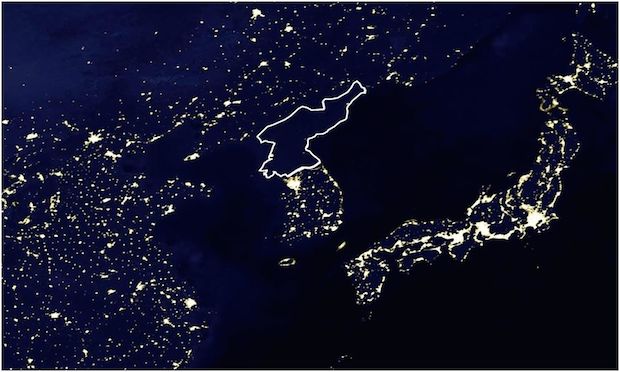Interventionism and Ignorance Revisited

Kevin Quealy reports on the results of an experiment that tested geographical knowledge and related it to foreign policy preferences:
An experiment led by Kyle Dropp of Morning Consult from April 27-29, conducted at the request of The New York Times, shows that respondents who could correctly identify North Korea tended to view diplomatic and nonmilitary strategies more favorably than those who could not [bold mine-DL]. These strategies included imposing further economic sanctions, increasing pressure on China to influence North Korea and conducting cyberattacks against military targets in North Korea.
They also viewed direct military engagement – in particular, sending ground troops – much less favorably than those who failed to locate North Korea.
This finding is consistent with a past study that showed a strong correlation between geographical ignorance and a preference for military options. As Quealy notes, three political scientists ran a similar experiment in 2014 and found much the same thing regarding U.S. policy in Ukraine:
However, the further our respondents thought that Ukraine was from its actual location, the more they wanted the U.S. to intervene militarily. Even controlling for a series of demographic characteristics and participants’ general foreign policy attitudes, we found that the less accurate our participants were, the more they wanted the U.S. to use force, the greater the threat they saw Russia as posing to U.S. interests, and the more they thought that using force would advance U.S. national security interests [bold mine-DL]; all of these effects are statistically significant at a 95 percent confidence level. Our results are clear, but also somewhat disconcerting: The less people know about where Ukraine is located on a map, the more they want the U.S. to intervene militarily.
It shouldn’t come as a surprise that less knowledge about a foreign country corresponds with a preference for more destructive and irresponsible policies in relation to that country. If someone doesn’t even know where a given country is, it is unlikely that he knows much about the surrounding region or the probable consequences of military action. He is also probably more likely to accept simplistic portrayals of the other country that cast it in the worst possible light, which will make more coercive measures seem more appealing.
An ignorant public is bound to be much easier to mislead when it comes to talking about foreign threats, since they will tend to rely on what they are told about another country and threat-inflating elites are always there to exaggerate the danger from abroad while minimizing the risks of “action.” These findings also suggest that we shouldn’t want foreign policy novices in positions of authority, since they will be easy to manipulate into supporting more aggressive measures in the same way. Too little knowledge about the world makes a president or a member of Congress an easy mark for ideological hard-liners that offer the illusion of simple and cheap solutions to difficult foreign problems.
Comments